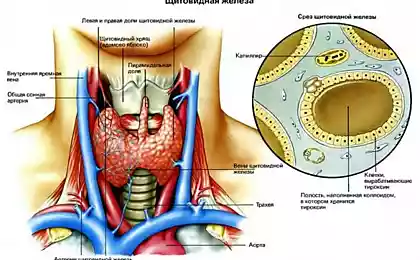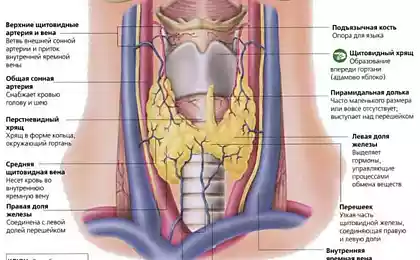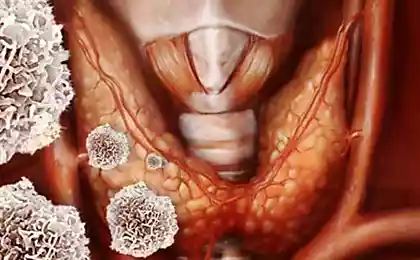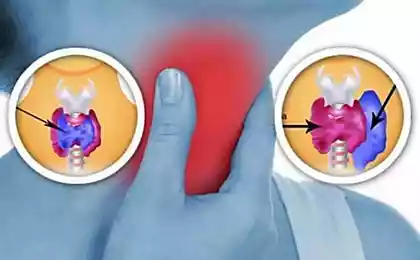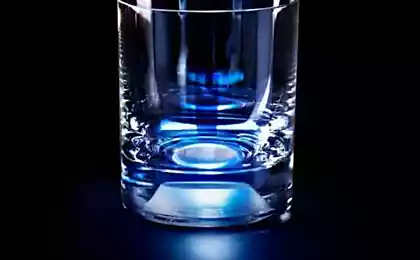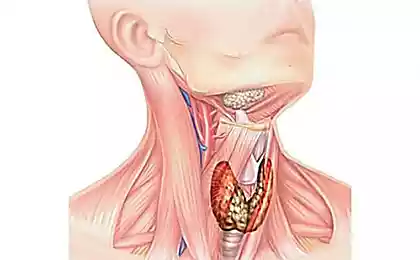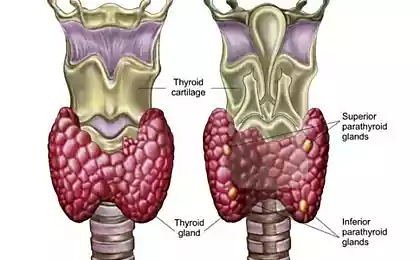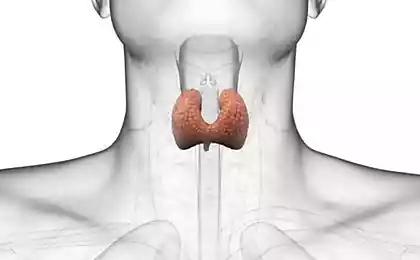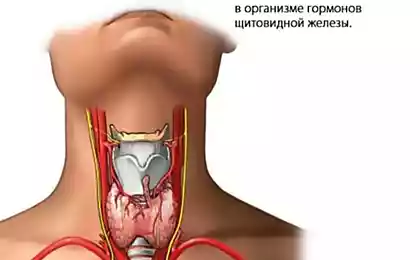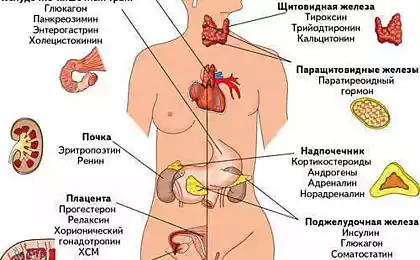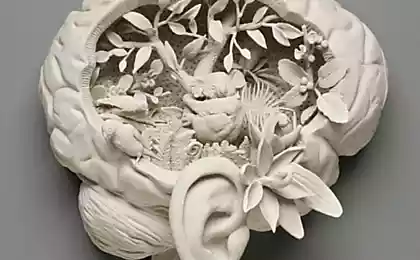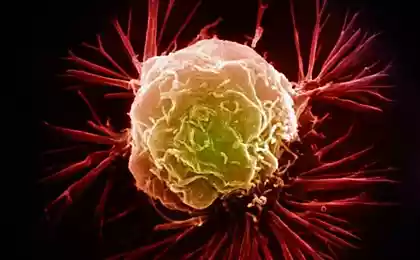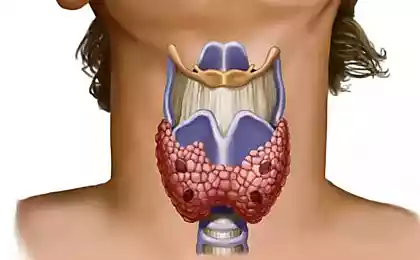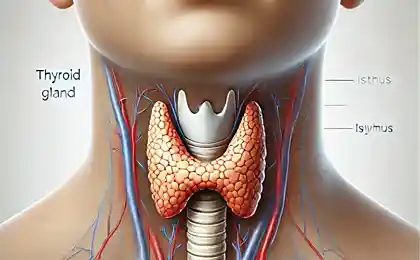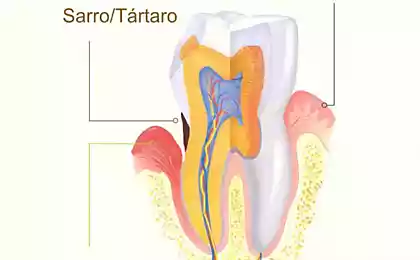214
Iodine and thyroid gland: how to take iodine correctly?
Health ecology. For the full work of the thyroid gland, iodine is needed. Useful microelement involved in hormone synthesis and metabolism regulation
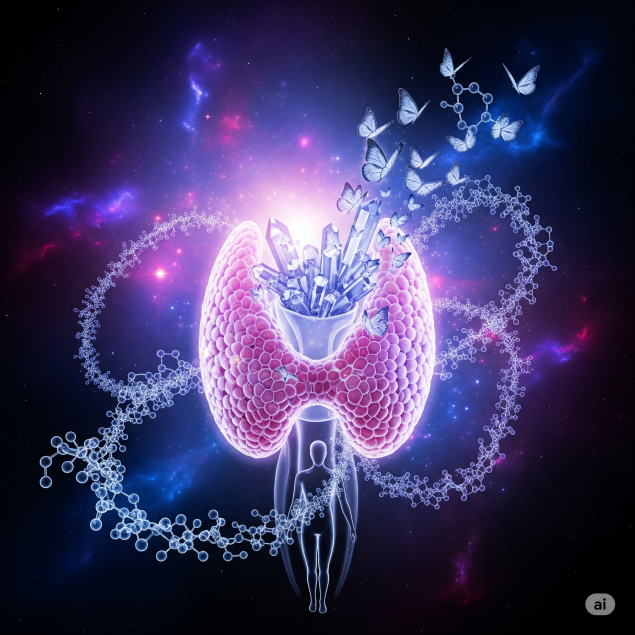
The thyroid gland is a small organ weighing only 15-20 grams, which controls almost all processes in our body. Without enough iodine, this small gland cannot perform its functions, leading to serious health problems. According to the World Health Organization, more than 2 billion people worldwide suffer from iodine deficiency.
History of discovery
In 1811, French chemist Bernard Courtois accidentally discovered iodine when his cat overturned flasks of sulfuric acid and seaweed ash. The purple vapor raised from the mixture turned out to be a new chemical element. A century later, scientists discovered a link between iodine and thyroid function, revolutionizing the understanding of endocrine disease.
The role of iodine in the thyroid gland
Iodine is an indispensable trace element for the synthesis of thyroid hormones - thyroxine (T4) and triiodothyronine (T3). These hormones regulate metabolism, growth and development of the body, the work of the cardiovascular and nervous systems. Without enough iodine, the thyroid gland cannot produce the required amount of hormones, leading to hypothyroidism.
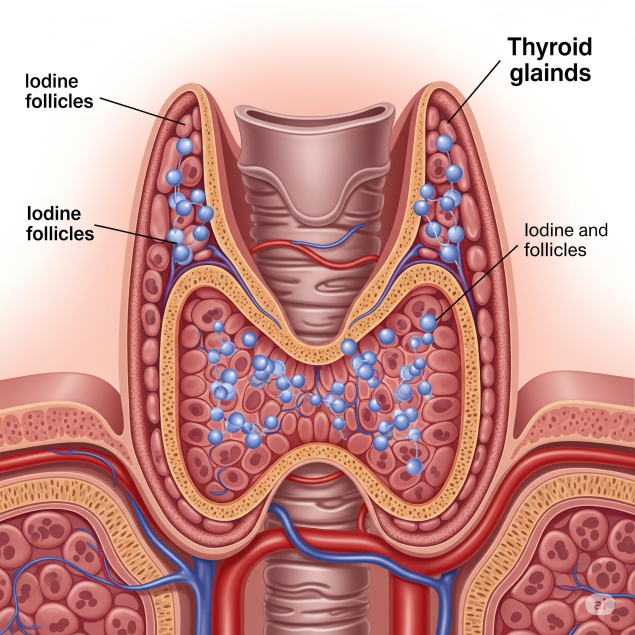
Interesting fact.
The thyroid gland is able to concentrate iodine 25-50 times more than any other organ in the body. This property is used in medicine to diagnose and treat thyroid diseases with radioactive iodine.
Symptoms of iodine deficiency
Iodine deficiency can manifest in a variety of ways, and symptoms often develop gradually. It is important to know the main signs in order to consult a doctor in time and adjust nutrition.
Early symptoms of iodine deficiency:
Fatigue and weakness, decreased performance, deterioration of memory and concentration, increased body weight without changing nutrition, dry skin and brittle hair, increased sensitivity to cold, menstrual disorders in women.
Serious consequences
Prolonged iodine deficiency can lead to the formation of goiter, the development of nodes in the thyroid gland, infertility, delayed mental development in children, an increased risk of miscarriage in pregnant women.
Daily requirement for iodine
The need for iodine depends on the age, sex and physiological state of the person. It is especially important to ensure adequate iodine intake in children, adolescents and pregnant women.
Age group Daily need for iodine (mcg)
Children 0-6 months110
Children 7-12 months130
Children 1-8 years old90
Children 9-13 years old120
Adolescents 14-18 years old150
Adults 150
Pregnant women220
Nursing mothers290
Natural sources of iodine
The best way to provide the body with iodine is a balanced diet that includes foods rich in this trace element. The iodine content of products depends greatly on the region and method of processing.

Iodine-rich foods:
Seaweed (nori, kelp, wakame) - up to 2000 μg per 100g, sea fish (cod, tuna, salmon) - 50-150 μg per 100g, seafood (shrimp, mussels, squid) - 50-200 μg per 100g, dairy products - 10-50 μg per 100g, eggs - 25 μg in one egg, iodized salt - 25-40 μg per 1g of salt.
Practical advice on the use of iodized salt
Iodized salt remains the most affordable and effective way to prevent iodine deficiency. However, it is important to use and store it properly to preserve the beneficial properties of iodine.
Rules for the use of iodized salt:
Add salt to prepared meals or at the end of cooking – iodine breaks down at high temperatures. Store salt in a dry, dark place in a tightly closed container - iodine evaporates in light and in contact with air. Use salt for a year after opening the package. Do not use salt for canning - iodine can affect the fermentation process.
How to properly take iodine preparations
In some cases, dietary sources of iodine may not be sufficient, especially in regions with low iodine content in soil and water. In such situations, the doctor may recommend taking iodine preparations.
Important warning
Self-administration of iodine can be dangerous! Excess iodine is as harmful as its deficiency. Before starting any iodine-containing drugs, be sure to consult a doctor and take tests for thyroid hormones.
Types of iodine drugs
There are several forms of iodine-containing drugs, each of which has its own application features:
Potassium iodide
The most common and safe form of iodine for the prevention of deficiency. It is well absorbed by the body, has a minimum of side effects. It is recommended to take after meals, drinking enough water.
Yodomarin and analogues
Prepared preparations containing a precisely dosed amount of iodine. Convenient for long-term use, have different dosages for different age groups. Accepted according to the instructions and recommendations of the doctor.
Complex vitamins
Contain iodine in combination with other trace elements and vitamins. Suitable for general health promotion, but may contain insufficient iodine to correct deficiency.
When iodine can be harmful
There are conditions in which additional iodine intake is contraindicated or requires special care. It is important to be aware of these limitations so as not to harm your health.
Contraindications to taking iodine:
Hyperthyroidism (increased thyroid function), autoimmune thyroid diseases, iodine allergy, some kidney diseases, taking certain medications.
Signs of excess iodine
Iodine overdose can cause serious disruption to the thyroid gland and other body systems. Symptoms of excess iodine include tachycardia, increased excitability, sweating, diarrhea, metallic taste in the mouth, skin rashes.
Clinical case
A 35-year-old woman started taking seaweed in weight loss capsules, unaware of its high iodine content. A month later, she developed symptoms of hyperthyroidism: heart palpitations, weight loss, insomnia. The tests showed an excess of iodine by 10 times. After discontinuation of the drug and treatment, the condition normalized, but it took several months for a full recovery.
Features of taking iodine in different periods of life
Pregnancy and breastfeeding
During pregnancy, the need for iodine increases by 50% as maternal thyroid hormones are involved in fetal brain development. Iodine deficiency during pregnancy can lead to impaired mental development of the child, miscarriage of pregnancy, congenital malformations.
Recommendations for pregnant women
Plan your pregnancy in advance and start taking iodine 3 months before conception. Take 200-250 mcg of iodine daily as recommended by your doctor. Use iodized salt in cooking. Include in the diet fish, seafood, dairy products.
Child and adolescence
Iodine is critical for normal growth and development in children. Iodine deficiency in childhood can lead to delayed physical and mental development, reduced school performance, increased fatigue.
Older age
With age, thyroid function may decrease, which requires special attention to the intake of iodine. However, older people are also more sensitive to excess iodine, so the dosage should be selected individually.
Modern methods of diagnosing iodine deficiency
For accurate diagnosis of the state of the thyroid gland and assessment of the iodine status of the body, a complex of laboratory and instrumental research methods is used.
Main analyses:
TSH (thyroid-stimulating hormone) is the main indicator of thyroid function. Free T4 and free T3 are thyroid hormones. Antibodies to thyroperoxidase and thyroglobulin - to detect autoimmune processes. Iodine in the urine - to assess the iodine status. Thyroid ultrasound - to assess the structure and size of the organ.
Conclusion
Iodine is a vital micronutrient, the deficiency of which can lead to serious health disorders. The correct approach to the prevention of iodine deficiency includes a balanced diet using iodized salt, the use of seafood and, if necessary, taking iodine preparations under the supervision of a doctor.
Remember that both deficiency and excess iodine can be dangerous to health. Therefore, any changes in the diet or taking drugs should be agreed with the doctor and based on the results of laboratory tests. Regular monitoring of thyroid function will help maintain health for years to come.
Glossary
Thyroid hormones
Hormones produced by the thyroid gland (T3 and T4), which regulate metabolism, growth and development of the body.
Hypothyroidism
A condition in which the thyroid gland produces an insufficient amount of hormones, which leads to a slowdown in metabolism.
Hyperthyroidism
A state of increased thyroid activity characterized by excessive production of thyroid hormones.
goiter
Thyroid enlargement, often associated with iodine deficiency or other disorders of gland function.
TSH (thyroid-stimulating hormone)
The pituitary hormone that regulates the thyroid gland. An increase in TSH often indicates a decrease in thyroid function.
Thyroxine (T4)
The main thyroid hormone containing four iodine atoms. In tissues, it turns into a more active form of T3.
Triiodothyronine (T3)
An active form of thyroid hormone containing three iodine atoms. It has more biological effects than T4.
Iodine deficiency
A condition in which the body receives an insufficient amount of iodine for the normal functioning of the thyroid gland.
